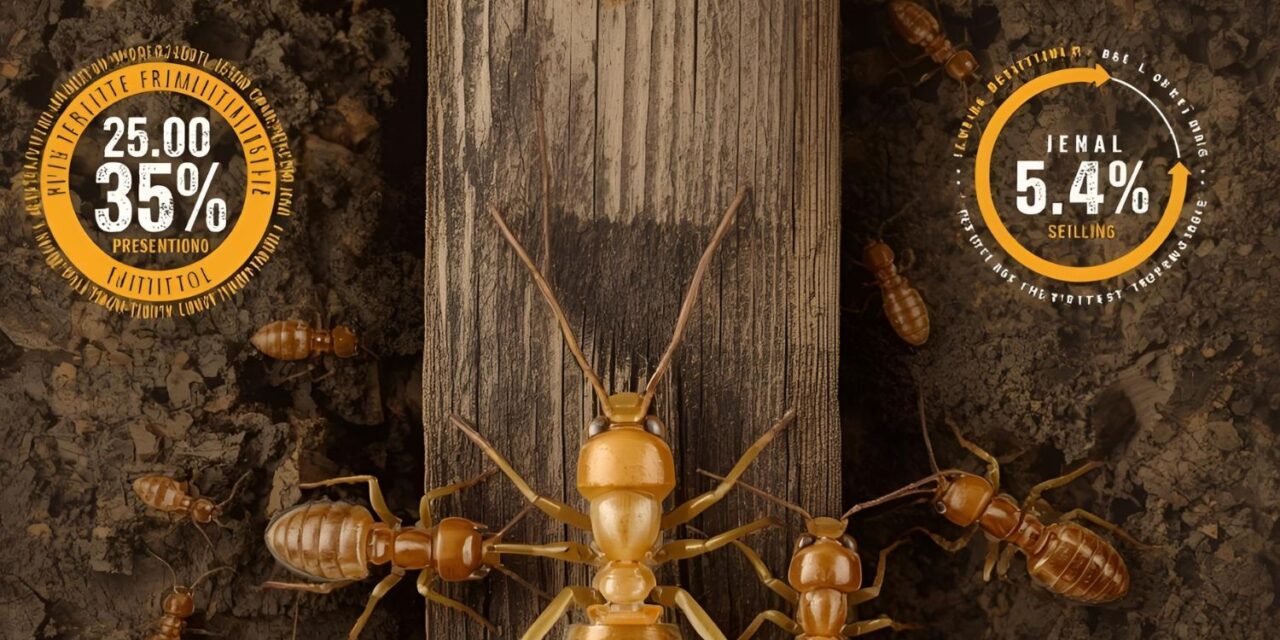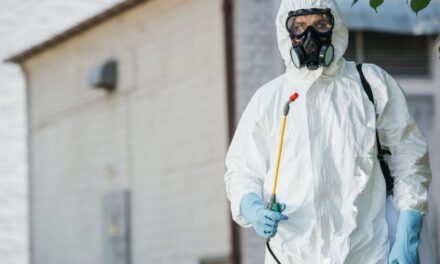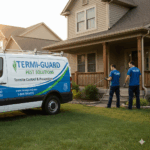Estimated reading time: 9 minutes
Key Takeaways
- Termites pose a *silent, colossal threat* to commercial properties, making robust commercial termite control a necessity.
- Ignoring termites leads to severe financial troubles, *operational disruptions*, and significant *reputational damage* for businesses.
- Effective termite treatment for offices and other commercial spaces requires *tailored solutions* like baiting systems, liquid barriers, and pre-construction treatments.
- Proactive commercial termite control through preventative measures and *consistent monitoring* is crucial for early detection and cost-saving.
- A termite AMC for companies is a *smart, long-term investment*, offering continuous monitoring, scheduled treatments, and predictable budgeting.
- Choosing an *experienced, certified, and safety-conscious partner* with proven methods is paramount for effective commercial termite control.
Table of Contents
Every business owner understands the importance of safeguarding their assets, from valuable inventory to the very building that houses their operations. Yet, there’s a silent, unseen threat that can undermine all your hard work: termites. These tiny pests are capable of causing colossal damage, making robust commercial termite control not just a recommendation, but an absolute necessity for any enterprise.
In this guide, we’ll explore why protecting your business from these destructive insects is so vital. We’ll look at the unique challenges commercial properties face and the specialized solutions available. Understanding commercial termite control is key to preventing costly damage and ensuring your business continues to thrive without interruption.
1. Safeguarding Your Enterprise from the Silent Destroyer
Termites are often called “silent destroyers” for a very good reason. They are small, secretive insects that can cause a lot of damage without being seen. For commercial properties, these pests pose a significant and often unseen threat. They work quietly, munching away at the very fabric of your building and its contents. These tiny insects silently consume wood, paper, fabric, and other materials that contain cellulose. This means they can damage many parts of a business. Imagine them eating away at the support beams of your office, or the wooden shelves in your warehouse.
The impact of a termite infestation can be widespread and devastating. They can undermine the structural integrity of buildings, making them unsafe. They can destroy valuable inventory, like stored documents, clothing, or even furniture. What’s more, termites can damage critical infrastructure, such as electrical wiring within walls, which can lead to dangerous shorts or power outages.
Because of this, commercial termite control is not just a regular operational expense. It’s a vital, proactive investment. It’s about safeguarding your business’s physical assets and ensuring everything runs smoothly without unexpected shutdowns. Businesses need to understand that non-residential structures have special challenges. This means standard home treatments might not be enough. Specialized solutions are needed to prevent very costly long-term damage and big disruptions to your work.
(Based on: 1. Introduction: Protecting Your Business from the Silent Destroyer – Commercial Termite Control)
2. Why Termite Control for Business is an Absolute Must
When it comes to running a business, many things demand attention. However, termite control for business should always be at the top of the list. Why? Because ignoring these tiny invaders can lead to severe financial troubles, stop your operations, and harm your company’s good name. For businesses, dealing with termites is truly non-negotiable.
Let’s break down the serious problems termites can cause for companies:
Financial Impact
Termites are expensive pests. They can cause hundreds of thousands of dollars in structural damage to buildings. This includes important parts like support beams, flooring, and the very foundation of your property. Repairing this kind of damage can be incredibly costly.
Beyond the structure, termites can destroy your inventory. If you store paper products, textiles, furniture, or other items made of cellulose in your warehouses or retail spaces, termites can ruin them completely. This means you lose money on products you can no longer sell.
They can also damage sensitive equipment. Termites have been known to build nests within electrical conduits or control panels, causing malfunctions or even complete system failures. This results in direct repair costs for your building, replacement costs for damaged goods, and even potential legal liabilities if the damage affects others.
Operational Disruption
A termite problem can force your business to stop working. Infestations often mean you have to temporarily close your doors for treatment and repairs. This leads to significant downtime, which means lost revenue and big disruptions to your supply chains. Imagine your factory or store being shut for weeks!
Structural damage from termites can also create safety hazards. Loose floors or weakened walls can be dangerous for your employees and customers. This could lead to injuries and, you guessed it, more legal action against your company. Keeping your workplace safe is a top priority, and termites undermine that safety.
Reputational Damage
Even if you fix the damage, finding termites can severely impact your business’s brand image. If clients or customers find out about a pest problem, it can erode their trust. For businesses that rent out spaces, it can affect tenant satisfaction and lead to people moving out.
For businesses in hospitality (like hotels), food service (restaurants), or retail, visible termite damage or a known infestation can be disastrous. Customers will be deterred, sales will drop, and your business could suffer from very negative publicity. People want to visit clean, safe places, and termites signal the opposite.
In conclusion, proactive termite control for business acts as a strong safeguard. It protects not only your physical assets but also the intangible value of your company’s reputation and its ability to operate without any unwanted interruptions. This is why professional pest management is an essential part of business maintenance.
(Based on: 2. Why Termite Control for Business is Non-Negotiable)
3. Tailored Termite Treatment for Offices and Diverse Commercial Settings
Commercial environments are very different from homes. This means they need special attention when it comes to keeping termites away. Termite treatment for offices and other commercial spaces needs to be highly customized and strategic. What works for a small house might not be right for a large office building or a busy retail store.
Think about the specific needs of different businesses:
- Offices might have sensitive electronics, a lot of foot traffic, and need treatments that don’t make a mess or have strong smells.
- Warehouses are large, open spaces often filled with stored goods, requiring different treatment methods to cover big areas safely.
- Retail spaces demand discreet and safe applications so that customers aren’t disturbed, and products remain safe.
Because of these differences, effective commercial solutions go beyond standard residential approaches. Let’s look at some tailored treatments for commercial pest management:
Baiting Systems
- Mechanism: This method involves placing special bait stations strategically around the outside of your property. Termites find these stations, feed on the bait, and then share it with their colony members. The bait contains an insect growth regulator, which slowly stops the termites from growing and eventually leads to the colony dying out. It’s like a slow, silent attack on the entire group of pests.
- Application: Baiting systems are often a good choice in sensitive environments. This includes places where liquid applications might cause disruption, like near food preparation areas, inside offices, or where many people are present. They are less intrusive and can be very effective over time.
Liquid Barrier Treatments
- Mechanism: This is a more traditional method. Liquid termiticides (special chemicals) are applied to the soil around the foundation of your building. This creates a continuous chemical barrier that termites cannot pass through to get inside.
- Advanced Method: Today, many pest control companies use newer, non-repellent termiticides. These smart chemicals are designed so that termites cannot detect them. The termites walk through the treated soil unknowingly. The active ingredient then sticks to their bodies and they carry it back to their colony. This allows the chemical to spread throughout the colony, leading to widespread eradication. This method is highly effective for commercial termite control.
Pre-Construction Treatments
- Mechanism: For new commercial buildings, this is a crucial preventative step. Before the foundation is even laid, termiticides are applied to the soil. This creates a powerful, long-lasting barrier before the building is finished.
- Benefit: This provides a highly effective preventative shield against future infestations. It’s much harder for termites to get in if there’s a protective layer from the start. Making this a crucial step for long-term protection against wood-destroying organisms.
Eco-Friendly and Integrated Pest Management (IPM) Options
- Greener Alternatives: Many commercial pest control providers now offer greener, more environmentally friendly alternatives. These can include botanical-based treatments, which use plant extracts; heat treatments, which use high temperatures to kill termites; or borate applications, which treat wood directly. These options are great for businesses that want to minimize chemical use.
- IPM Strategy: Integrated Pest Management (IPM) is a smart way to deal with pests. It combines many different tactics. The IPM approach tries to use non-chemical solutions whenever possible. It also includes thorough inspection and constant monitoring to find and stop termites early. This strategy minimizes environmental impact, ensures safety for employees and customers, and provides long-term effectiveness, all while being perfectly tailored to the specific commercial context of your business. This comprehensive approach is a key part of modern commercial termite control for various business settings.
(Based on: 3. Tailored Termite Treatment for Offices and Other Commercial Spaces)
4. Beyond Reactive Measures: The Power of Proactive Commercial Termite Control
It’s easy to think about termites only when you see them. But truly effective commercial termite control goes far beyond just treating a problem after it has already happened. The real power of termite management for businesses lies in proactive prevention and ongoing management. This is about stopping termites before they even have a chance to cause damage. Reactive treatment, while absolutely necessary when you have a current infestation, only deals with the symptoms. It’s like only fixing a leak after your roof has already started dripping inside. While you need to stop the drip, you also need to find and fix the source of the leak to prevent future problems.
Proactive commercial termite control focuses on several key areas to keep your property safe:
- Eliminating Conditions Conducive to Termites: This means taking away things that attract termites. For example, ensuring there’s no excess moisture around your building, fixing leaky pipes, and making sure that wood structures (like fences or decks) are not directly touching the soil. Termites love damp wood, so reducing moisture is a big step.
- Establishing Protective Barriers: This could involve the pre-construction treatments we talked about, or setting up bait systems and liquid barriers around an existing building. These barriers act as a defensive shield, making it very difficult for subterranean termites to get inside your commercial property.
- Implementing Consistent, Professional Inspection and Monitoring Programs: This is critically paramount for early detection. Regular check-ups by expert pest control technicians are vital. They look for tiny signs of termite activity that you might miss. This might include mud tubes, discarded wings, or damaged wood. Early detection allows you to catch a problem when it’s small, before it turns into a big, expensive headache.
The cornerstone of preventative success is identifying termite activity in its nascent stages. This means finding termites when they are just starting to cause trouble, not when they have already eaten through half your wall. When you detect them early, the interventions needed are much more targeted, less intrusive, and significantly less costly. Instead of needing major repairs and extensive treatments, a small, early treatment can solve the problem.
This proactive approach minimizes property damage to your commercial space. It greatly reduces operational disruption, keeping your business running smoothly. Most importantly, it prevents minor issues from escalating into major financial burdens. Ultimately, being proactive saves businesses substantial money and a lot of stress in the long run. Investing in regular pest inspections and preventative measures is a wise business decision for long-term security.
(Based on: 4. Beyond Treatment: The Power of Proactive Commercial Termite Control)
5. The Smart Investment: Understanding Termite AMC for Companies
Imagine having a constant shield protecting your business from the silent, destructive force of termites. That’s exactly what a termite AMC for companies offers. An Annual Maintenance Contract for termite control is a smart, strategic investment for businesses that want continuous and predictable protection against these pests. It’s like having an insurance policy, but instead of paying after the damage, you’re preventing it from happening in the first place.
An AMC goes beyond just a one-time treatment. It’s a comprehensive program designed specifically for commercial entities, providing sustained defense year after year. It gives businesses peace of mind, knowing their property is under constant watch for these wood-destroying insects.
Here are the key components and benefits of a termite AMC for companies:
Consistent Monitoring
One of the biggest advantages is regular, scheduled inspections. Expert technicians will visit your commercial property at set times throughout the year. They will carefully check for any new termite activity or signs of re-infestation. This ongoing vigilance ensures that if termites try to come back, they are caught very quickly. This continuous oversight is essential for long-term pest management.
Scheduled Preventative Treatments
An AMC often includes proactive applications and maintenance of existing barriers. This means treatments are applied before a problem starts, helping to deter termites and stop them from establishing a foothold. For example, if you have a liquid barrier, the contract might include checks and re-applications to keep it strong. This keeps your building protected around the clock.
Priority Service
Businesses with an AMC often receive priority response for any emergency or suspected termite activity. If you think you see signs of termites, your service provider will come out quickly. This minimizes downtime and potential damage, ensuring that any new problems are addressed immediately before they can grow bigger. This fast action can save your business a lot of trouble.
Budgeting Predictability
One of the most practical benefits for businesses is financial planning. An AMC provides a fixed, predictable cost for termite management services. This allows your business to budget effectively without unexpected, high expenses for emergency treatments and major repairs. You know exactly what you’re paying each year, which helps with financial stability. It turns a potential crisis into a manageable, recurring expense.
By engaging in a termite AMC for companies, businesses secure a comprehensive, long-term solution. This not only helps manage current risks but also proactively safeguards against future infestations. It ensures continuous protection of your valuable assets and smooth, uninterrupted operations. This dedicated commercial termite control plan is an investment that pays off by protecting your business’s future.
(Based on: 5. The Smart Investment: Understanding Termite AMC for Companies)
6. Choosing the Right Partner for Your Commercial Termite Control Needs
When it comes to protecting your business from termites, selecting the appropriate partner is perhaps the most critical decision you’ll make. The right professional service provider for your commercial termite control needs means effective and lasting protection. The wrong one could leave your business vulnerable to significant damage and ongoing problems.
Businesses should carefully evaluate potential service providers based on several key criteria. This ensures you get high-quality, specialized support that truly understands your commercial environment.
Experience and Specialization
- Look for a company with proven experience specifically in commercial termite control. Treating a home is different from treating a large office building, a factory, or a school. Commercial properties have different construction types, traffic patterns, and regulations.
- The company should understand the nuances of various commercial structures and business operations. They should know how to work around sensitive equipment, busy schedules, and customer foot traffic without causing disruption. Their expertise in commercial pest management is key.
Certifications and Licensing
- Always verify that the company and its technicians are fully licensed, certified, and insured according to state and local regulations. This is non-negotiable. Licensing ensures that they meet professional standards and have the necessary training.
- Being insured protects your business in case of any accidental damage during treatment. Adherence to safety protocols and industry best practices is also a sign of a reputable pest control business.
Proven Methods and Technology
- A good provider should offer a range of modern, effective treatment methods. This includes the bait systems, liquid barriers, pre-construction treatments, and eco-friendly options discussed earlier. No single solution fits every commercial property.
- They should utilize advanced inspection technologies for accurate detection. Tools like thermal imaging cameras can detect hidden termite activity by sensing temperature changes in walls. Moisture meters can find damp areas that attract termites. These tools help find problems early, even before visible damage appears.
Safety Protocols
- Confirm that the company prioritizes the safety of your employees, customers, and the environment. They must adhere to strict safety protocols for all chemical applications and operational procedures.
- Ask about the products they use and how they minimize exposure. For businesses handling food or sensitive products, this is especially important. A responsible provider will always put safety first.
Comprehensive Reporting and Communication
- A professional partner will provide detailed inspection reports. These reports should clearly explain what they found, where the activity is, and what they recommend.
- They should also give you clear treatment plans. You should know exactly what services will be performed, when, and why.
- Transparent communication throughout the service period is vital. This includes providing recommendations for addressing conducive conditions, such as fixing moisture issues, removing wood-to-soil contact, or sealing cracks in foundations. A good partner works with you to keep your property protected.
Choosing a service provider that truly understands the nuances of termite control for business is paramount. It ensures your commercial investment is protected effectively and sustainably for years to come. Don’t settle for less than an expert in commercial termite control.
(Based on: 6. Choosing the Right Partner for Your Commercial Termite Control Needs)
Conclusion: Secure Your Business’s Future with Expert Termite Protection
Termites might be small, but their capacity for destruction is immense. For any business, ignoring these pests is an invitation to significant financial, operational, and reputational risks. That’s why proactive commercial termite control is not just an option, but a vital investment in your company’s future.
We’ve learned that these silent destroyers can undermine structural integrity, ruin valuable inventory, and disrupt your entire operation. This makes professional termite control for business an indispensable part of managing a successful enterprise.
Remember that commercial environments have unique needs. It’s crucial to consider a tailored approach, including specialized termite treatment for offices and other specific commercial settings. And for truly long-term security, the predictable and comprehensive protection offered by a termite AMC for companies stands out as a smart investment.
Don’t wait for the tell-tale signs of an infestation – the mud tubes, the discarded wings, or worse, the visible damage. By then, the termites have likely been at work for a long time. Instead, act proactively. Contact a reputable commercial termite control expert today for a comprehensive inspection and a customized protection plan. Safeguard your assets, ensure continuous operations, and protect your business’s good name for years to come.
Frequently Asked Questions (FAQ)
Q1: What is commercial termite control and why is it different from residential?
A: Commercial termite control involves specialized strategies and treatments designed for businesses. Unlike homes, commercial properties often have larger footprints, diverse building materials, higher traffic, sensitive equipment, and unique operational concerns, requiring tailored and often more extensive solutions to minimize disruption and protect significant assets.
Q2: What are the main risks if a business ignores a termite infestation?
A: Ignoring termites can lead to severe financial repercussions (costly structural repairs, inventory loss), significant operational disruption (forced closures, safety hazards), and severe reputational damage, eroding customer trust and potentially leading to lost revenue and legal liabilities.
Q3: What types of termite treatment methods are available for commercial properties?
A: Common methods include baiting systems (slow-acting baits shared within colonies), liquid barrier treatments (chemical barriers in the soil), pre-construction treatments (preventative application before building), and eco-friendly/IPM options (botanical, heat, borate, and comprehensive non-chemical strategies).
Q4: What is a Termite AMC for companies and how does it benefit my business?
A: A Termite Annual Maintenance Contract (AMC) is a long-term service agreement providing continuous protection. It includes consistent monitoring, scheduled preventative treatments, priority service for emergencies, and predictable budgeting, ensuring ongoing defense against termites and protecting your business investment without unexpected costs.










